Best Rust Programming Books to Buy in February 2026
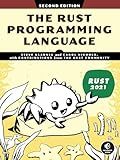
The Rust Programming Language, 2nd Edition


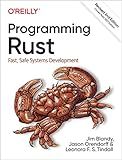
Programming Rust: Fast, Safe Systems Development


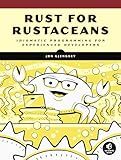
Rust for Rustaceans: Idiomatic Programming for Experienced Developers


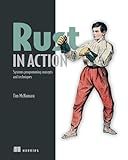
Rust in Action


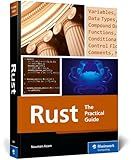
Rust Programming: A Practical Guide to Fast, Efficient, and Safe Code with Ownership, Concurrency, and Web Programming (Rheinwerk Computing)


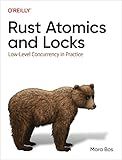
Rust Atomics and Locks: Low-Level Concurrency in Practice


In Rust, you can convert a string into a vector by using the .bytes() method. This method will return an iterator over the bytes of the string, which you can then collect into a vector using the .collect() method. For example:
let s = String::from("Hello, World!"); let v: Vec = s.bytes().collect();
This code snippet will convert the string "Hello, World!" into a vector of bytes. You can modify the code to convert the string into a vector of any other type as needed.
What is the best way to convert a string into a vector in Rust?
One way to convert a string into a vector in Rust is to iterate over the characters of the string and collect them into a vector. Here's an example code snippet that demonstrates this:
fn string_to_vector(s: &str) -> Vec { let mut v = Vec::new(); for c in s.chars() { v.push(c); } v }
fn main() { let s = "hello"; let v = string_to_vector(s); println!("{:?}", v); }
In this code snippet, the string_to_vector function takes a reference to a string s, iterates over its characters using the chars method, and collects them into a vector. The resulting vector v contains each character of the original string s. Finally, the function main demonstrates how to use this function by converting the string "hello" into a vector and printing it.
How to convert a string with special characters into a vector in Rust?
To convert a string with special characters into a vector in Rust, you can use the chars() method from the std::str::Chars iterator to iterate over each character in the string and collect them into a vector. Here's an example code snippet:
fn string_to_vector(s: &str) -> Vec { let chars: Vec = s.chars().collect(); chars }
fn main() { let s = "Hello, 𝒲orld! 💻"; let v = string_to_vector(s); println!("{:?}", v); }
In this example, the string_to_vector function takes a reference to a string s, iterates over each character using chars() method, and collects them into a vector of characters. The main function demonstrates how to use the string_to_vector function to convert a string with special characters into a vector.
How to convert a string into a mutable vector in Rust?
To convert a string into a mutable vector in Rust, you can use the chars() method to get an iterator over the characters of the string, and then collect them into a vector. Here is an example code snippet:
fn main() { let input_string = String::from("hello");
let mut char\_vector: Vec<char> = input\_string.chars().collect();
char\_vector.push('!'); // Modify the vector
println!("{:?}", char\_vector); // Output: \['h', 'e', 'l', 'l', 'o', '!'\]
}
In this example, we first create a String containing the text "hello". We then use the chars() method to get an iterator over the characters of the string, and collect them into a mutable Vec<char>. Finally, we modify the vector by adding an exclamation mark and print out the resulting vector.
This way, you can convert a string into a mutable vector in Rust.
What is the simplest method for converting a string into a vector in Rust?
One simple method for converting a string into a vector in Rust is to use the chars() method to get an iterator over the characters in the string, and then collect the characters into a vector using the collect() method. Here is an example:
fn main() { let s = String::from("hello");
let v: Vec<char> = s.chars().collect();
println!("{:?}", v);
}
This will output ['h', 'e', 'l', 'l', 'o'], where each character in the string has been converted into a separate element in the vector.
